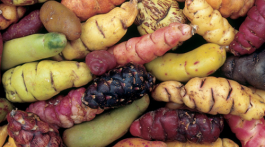Minister of Agriculture and Rural Development, Chief Audu Ogbeh has restated that the President Muhammadu Buhari-led administration is fully committed to putting a stop in food importation; insisting that the country cannot continue to import food that could be produced locally, as a lot of money has been wasted on importation over the years.
Ogbeh, who disclosed this at the launching of the second phase of Agricultural Equipment Hiring Enterprises (AEHE) programme at the National Centre for Agricultural Mechanization (NCAM) in Ilorin, yesterday, said plan is in the offing by the Federal Government to lobby banks to lower the interest rate at five percent as against the two digit interest rate for farmers.
The minister said if interest rate comes down, banks will definitely have more loans to give and more farmers will be taking loans because of the low rate; not only that, he added: “Agriculture will grow and Nigerians will feed well”.
On frequent clashes between farmers and herdsmen, he promised that the Federal Government would create grazing zones for herders.
His words: “Government will grow pastoral grasses and forages in the South to feed the cattle in the North; just as Saudi did and fed cows in the United State on seasonal basis.”
Commending NCAM for its efforts in the mechanization of agriculture, he reminded all that no country can practice large scale agriculture without mechanization.
Relying on available statistics, Ogbeh hinted that there are 800 million hectares of available farmland in the world with Africa accounting for 400million of this. Nigeria, he added, has 79 percent of farmland which translates to 92 square kilometers of land.
In his remarks, the Acting Executive Director of the centre, Engr. (Dr.) Muhideen Kasali, told the minister that NCAM has mechanized Nigeria over the years, in line with its given mandate.
According to Kasali, the centre has carried out research that has led to the design and development of several low technologies cutting across the value chains of roots, tubers, grains, cereals, fruits and fibres, which have impacted farmers greatly in terms of productivity.






No Comment